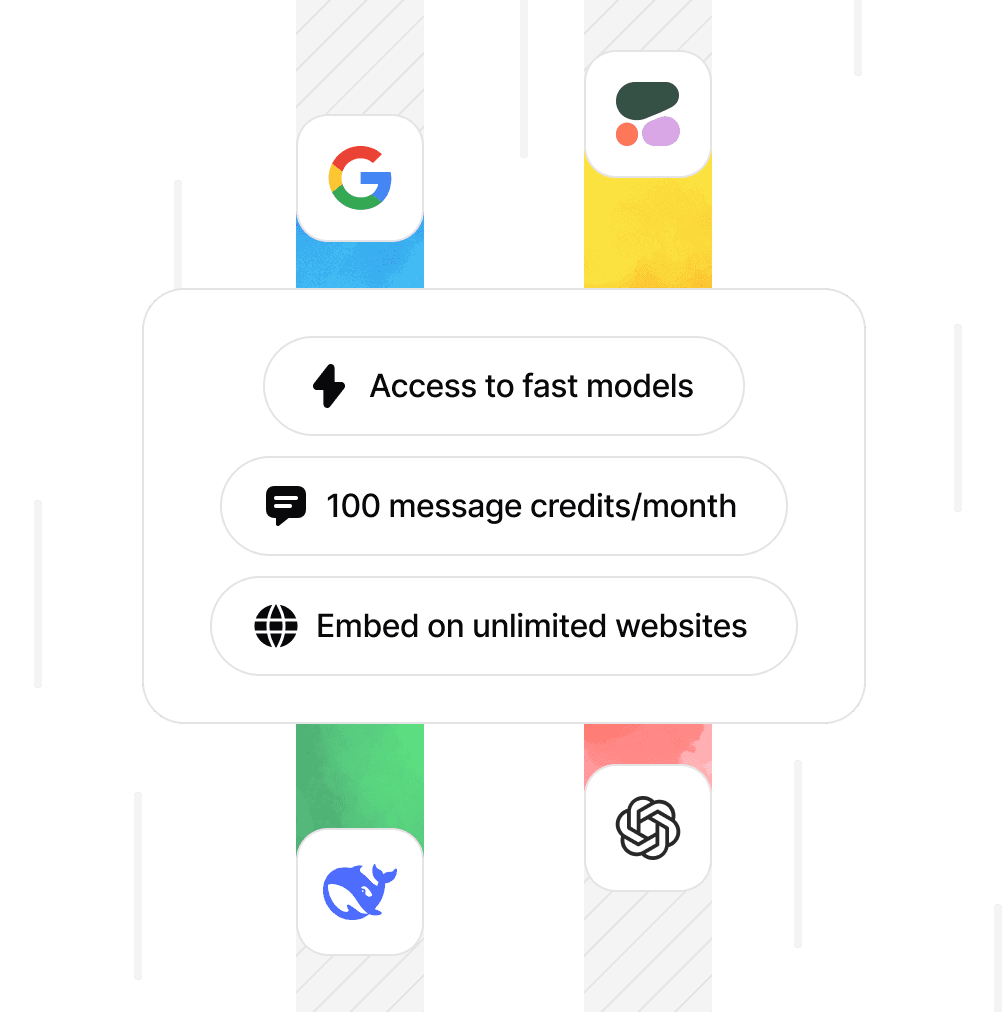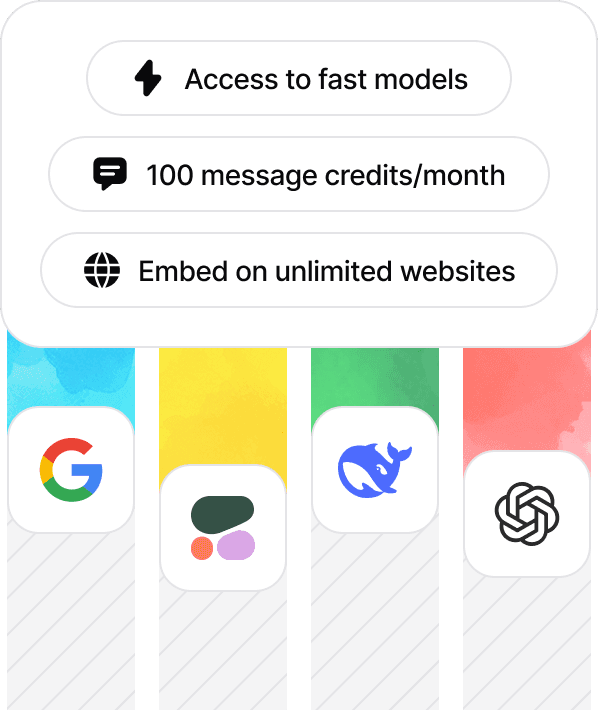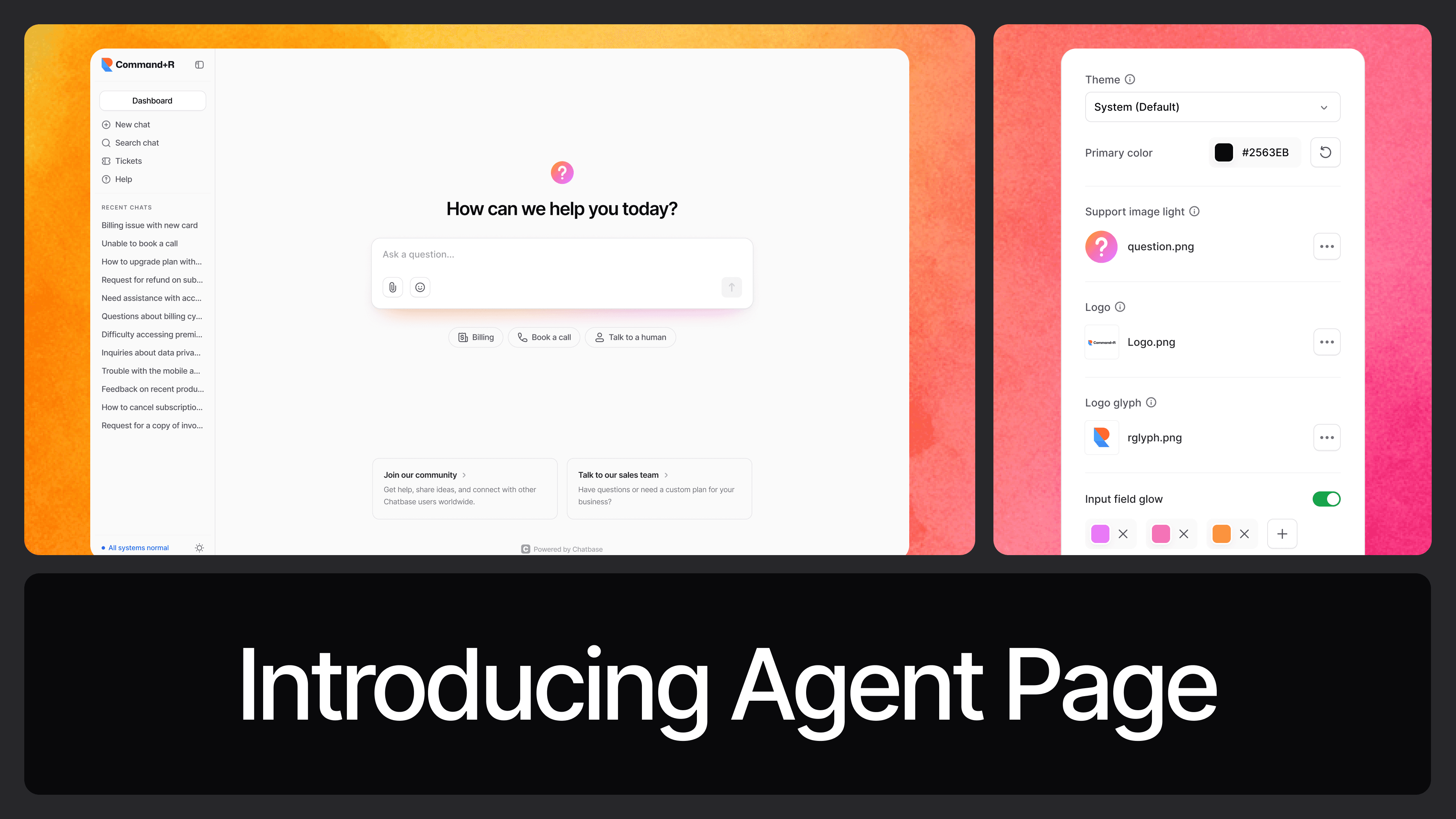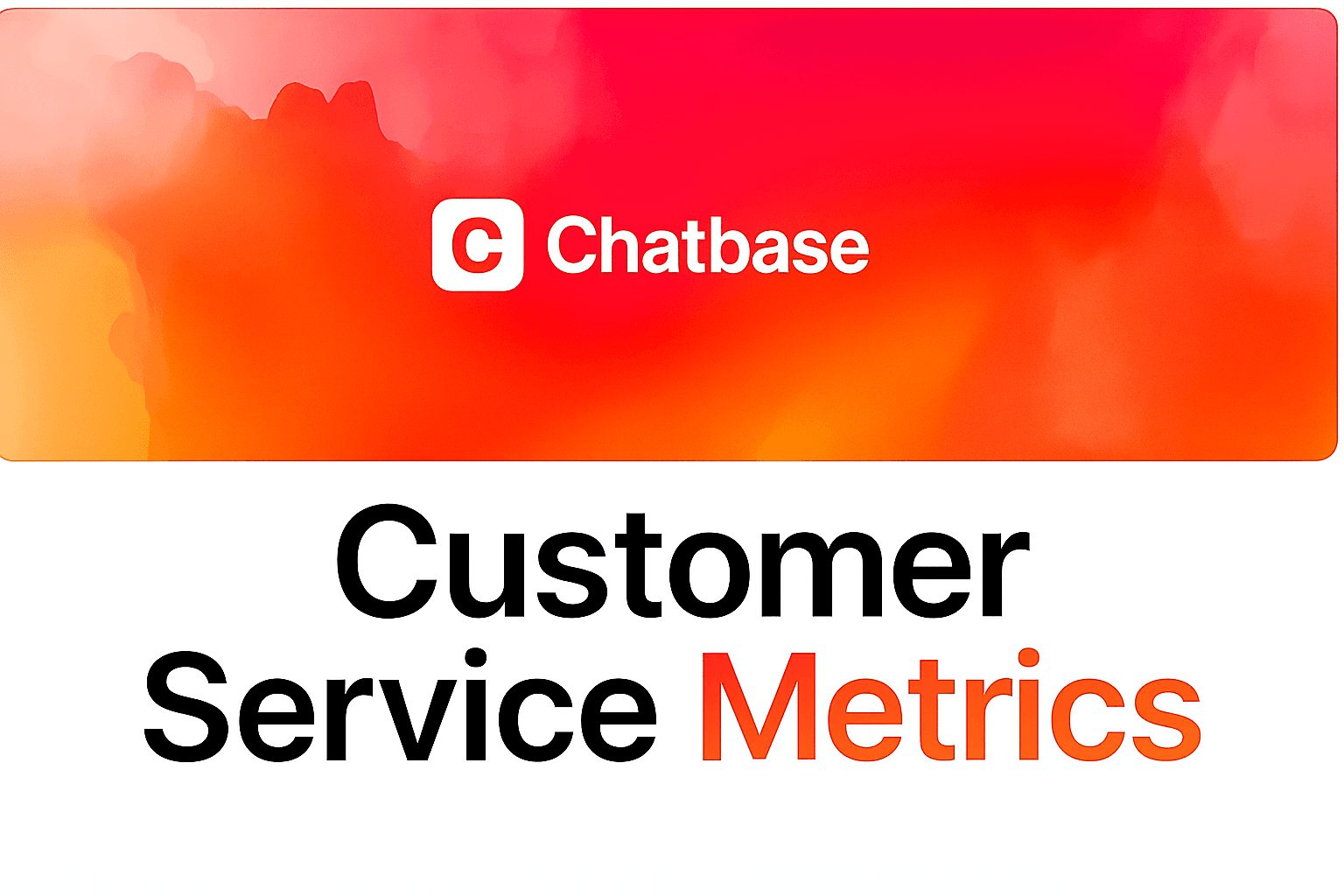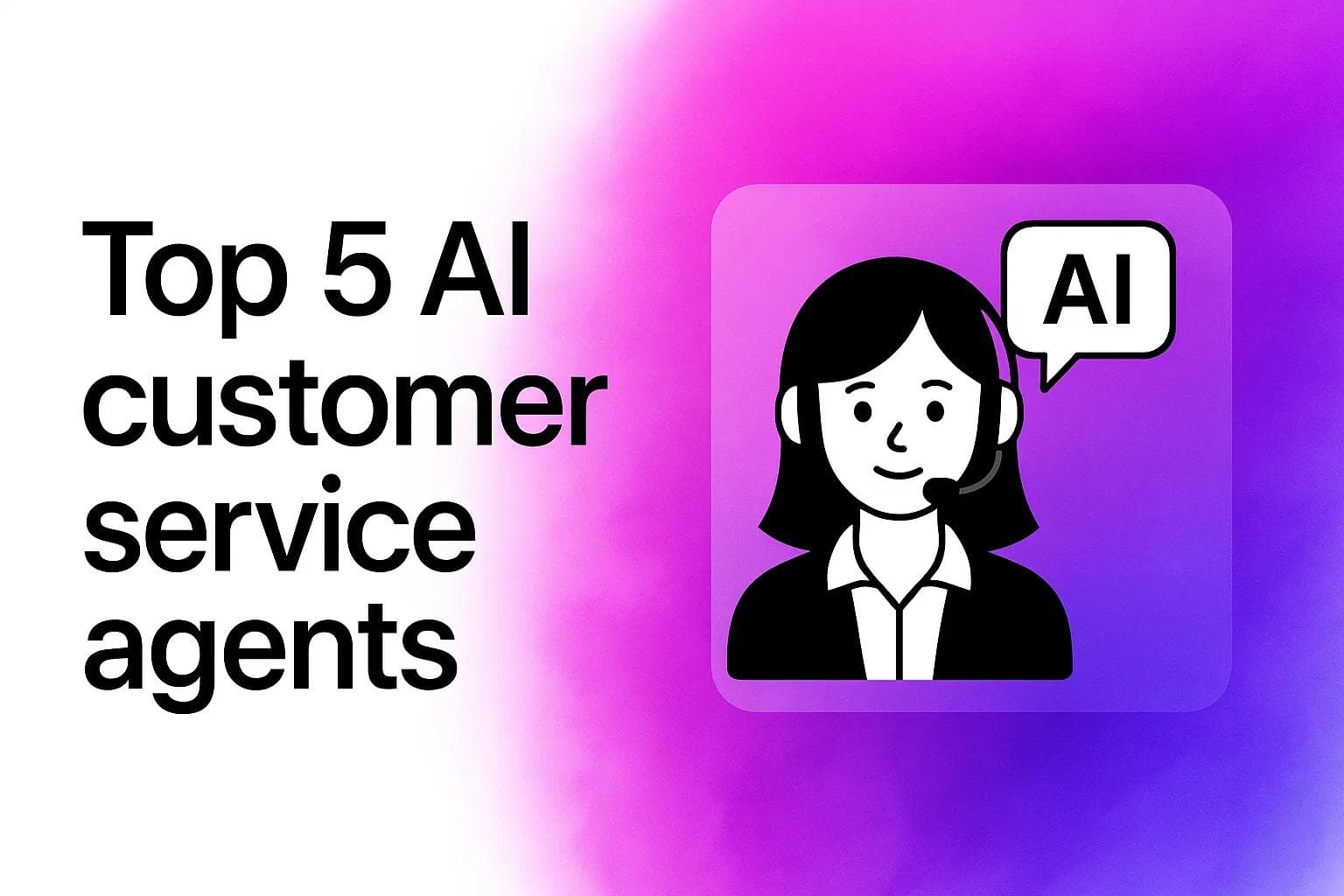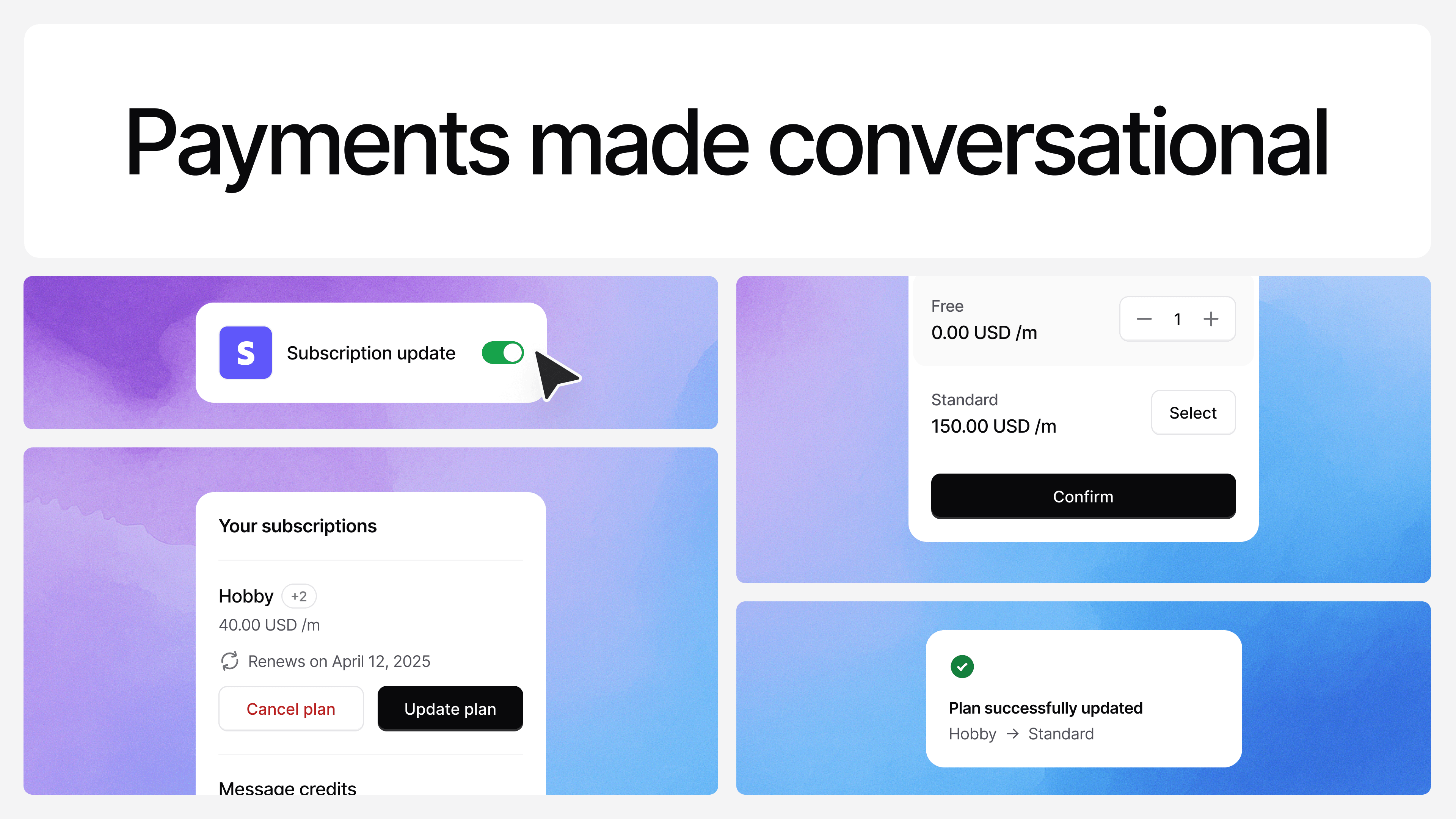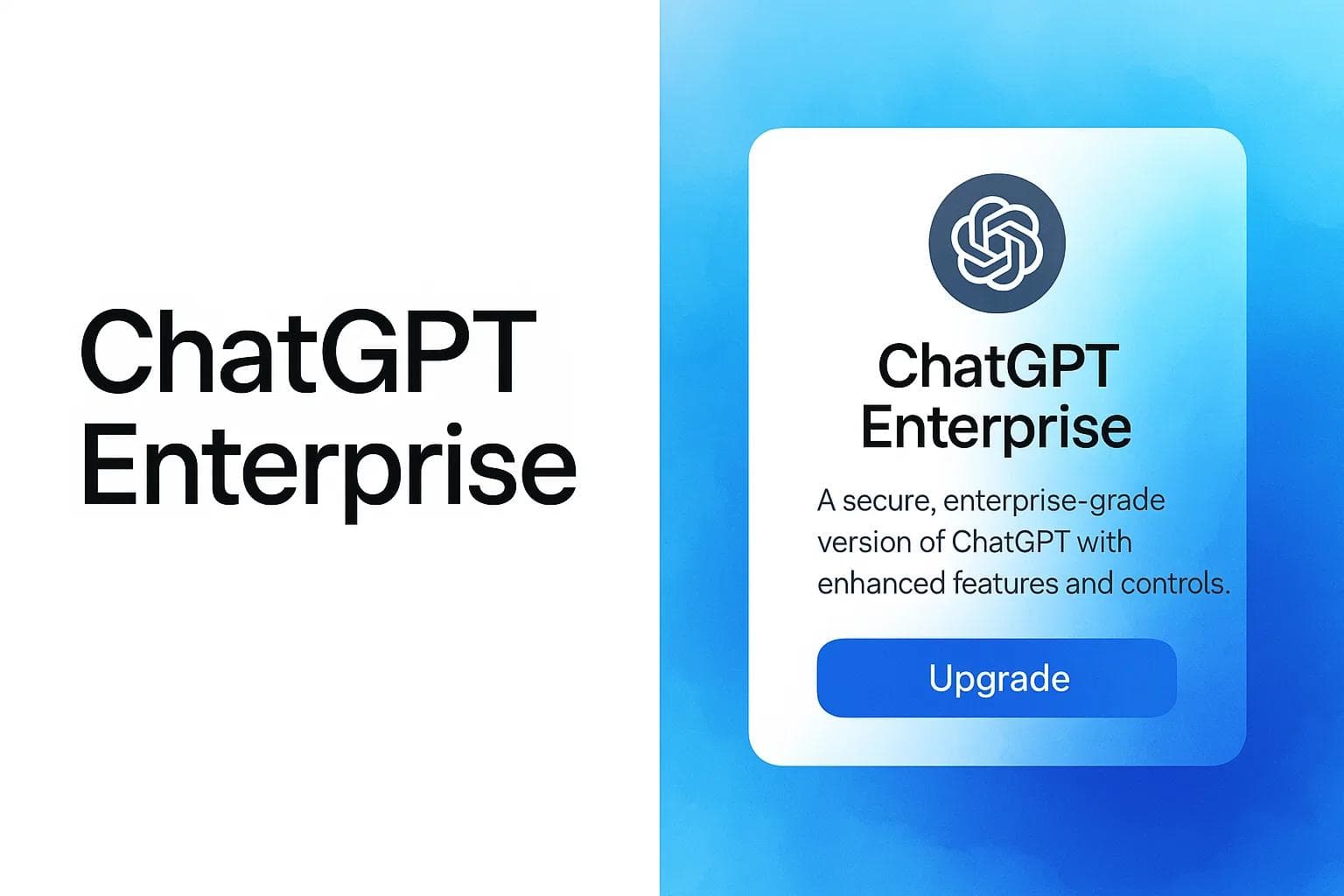7 AI-Powered Customer Engagement Strategies
Ilias Ism
Aug 8, 2024
12 min read
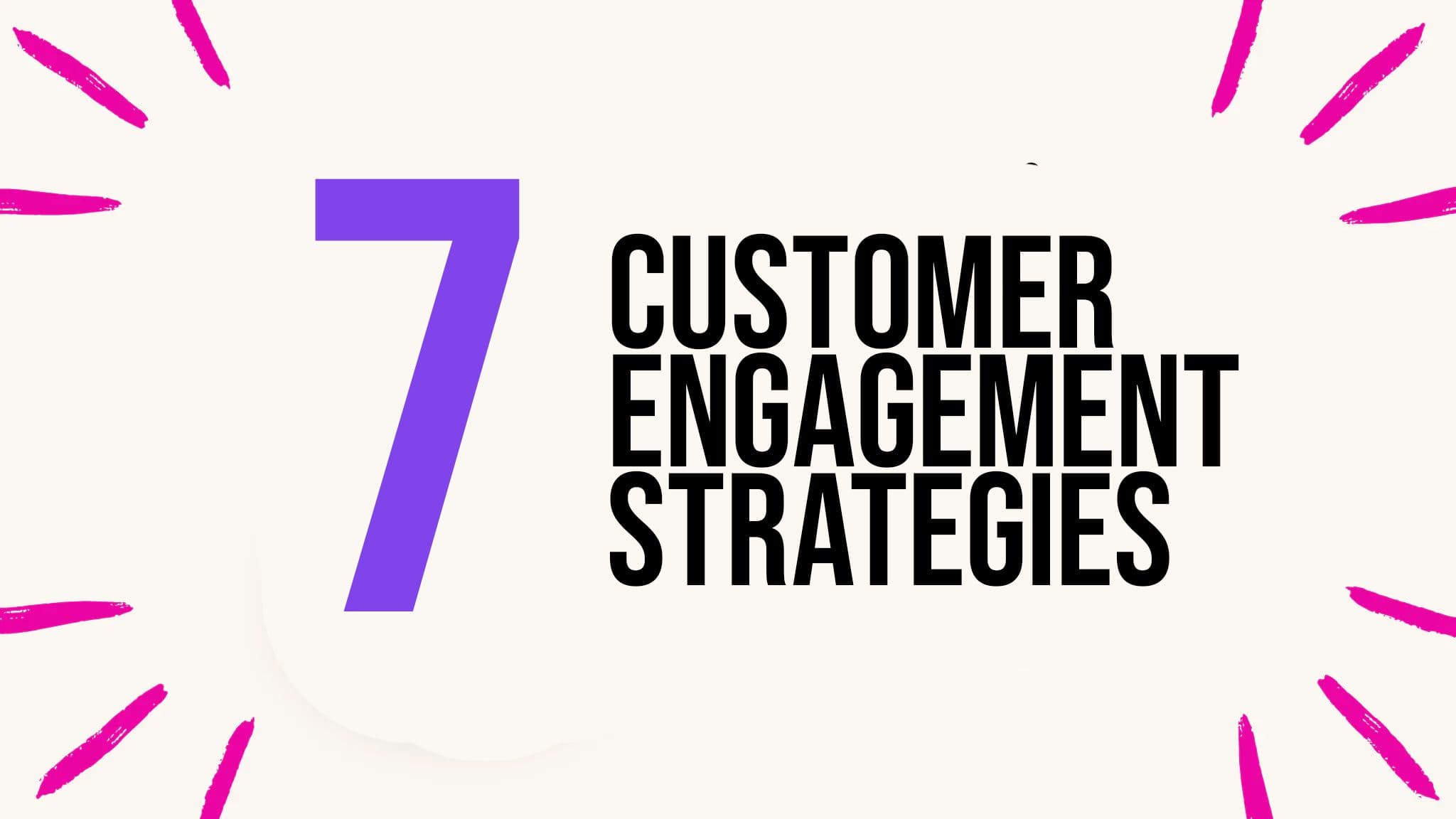
In 2024, customer engagement isn't just important—it's everything. And AI is revolutionizing how brands connect with their audience.
Ready to take your customer relationships to the next level?
We'll explore how top brands are using these strategies to deliver unforgettable digital customer care. Plus, you'll learn practical tips to implement AI in your own engagement efforts.
Buckle up—it's time to future-proof your customer relationships with the power of AI.
By the way, if you're looking to get started with AI-powered customer engagement right away, check out Chatbase. It's an easy-to-use AI chatbot builder that can help you create personalized, intelligent chatbots for your business in minutes. No coding required!
Why Customer Engagement Matters
Before diving into specific strategies, let's quickly recap why customer engagement is so crucial:
- Increased loyalty and retention - Engaged customers are more likely to stick with your brand long-term.
- Higher customer lifetime value - Engaged customers tend to spend more and make repeat purchases.
- Positive word-of-mouth - Highly engaged customers become brand advocates, recommending you to others.
- Valuable feedback - Engaged customers provide insights to help improve products/services.
- Competitive differentiation - A superior engagement strategy sets you apart from competitors.
With those benefits in mind, let's explore how AI is enabling next-level customer engagement.
1. Hyper-Personalized Experiences
![[object Object]](/_next/image?url=https%3A%2F%2Fcdn.sanity.io%2Fimages%2Fi6kpkyc7%2Fprod-dataset%2Fc66fedbf73345d4ac74f86c9ab45f97f98d4f388-1280x640.jpg&w=3840&q=75)
One of the most powerful applications of AI for customer engagement is enabling true 1-to-1 personalization at scale.
By analyzing vast amounts of customer data - including past purchases, browsing behavior, demographics, and more - AI can generate highly tailored recommendations, offers, and experiences for each individual customer.
Some examples of AI-powered hyper-personalization:
- Product recommendations - AI analyzes a customer's unique preferences and purchase history to suggest relevant products they're likely to be interested in.
- Dynamic website/app experiences - The content, layout, and offers shown to each visitor are customized in real-time based on their profile and behavior.
- Personalized email campaigns -AI determines the optimal send time, subject line, content, and offers for each recipient, while an Email Signature Maker ensures professional branding consistency across all communications.
- Custom pricing/promotions - Offers and discounts are tailored to each customer's price sensitivity and likelihood to convert.
Streaming giant Netflix is a master of AI-driven personalization.
Their recommendation engine analyzes viewing history to suggest relevant content, while even the artwork shown for each title is customized based on a user's preferences.
- Whether users are streaming on mobile devices, connected TVs, laptops, AI adapts the experience to ensure relevance across every screen - be it content recommendations, personalized advertising, or tailored promotions.
The key is moving beyond basic segmentation to true 1-to-1 personalization powered by machine learning. This level of tailoring creates more engaging, relevant experiences that keep customers coming back.
2. Conversational AI and Chatbots
![[object Object]](/_next/image?url=https%3A%2F%2Fcdn.sanity.io%2Fimages%2Fi6kpkyc7%2Fprod-dataset%2F42289a3ee8ff0eddb8723a7f3a76d69a71b08176-2776x1346.webp&w=3840&q=75)
AI-powered chatbots and virtual assistants have come a long way in recent years.
Today's conversational AI can engage in natural language conversations to answer questions, troubleshoot issues, make recommendations, and even complete transactions.
Some key benefits of AI chatbots for customer engagement:
- 24/7 availability - Chatbots can engage customers anytime, providing instant responses.
- Consistent experience - Chatbots deliver a uniform brand voice and quality of service.
- Scalability - AI can handle thousands of conversations simultaneously.
- Personalization - Chatbots can access customer data to tailor responses.
- Continuous improvement - Machine learning allows bots to get smarter over time.
Cosmetics retailer Sephora uses an AI chatbot on Facebook Messenger to engage customers with personalized beauty tips, product recommendations, and even virtual try-ons using augmented reality.
The key is creating conversational experiences that feel natural and human-like, while leveraging AI's ability to instantly access relevant information and handle high volumes.
3. Predictive Customer Service
![[object Object]](/_next/image?url=https%3A%2F%2Fcdn.sanity.io%2Fimages%2Fi6kpkyc7%2Fprod-dataset%2F3c5a67cd95836a48ae9c14f48c6b4c1f426c4933-4973x3309.jpg&w=3840&q=75)
Rather than waiting for customers to reach out with issues, AI enables companies to proactively identify and address potential problems before they occur.
By analyzing patterns in customer behavior and product usage data, AI can predict when a customer is likely to encounter an issue or churn.
Some applications of predictive customer service:
- Proactive outreach - Contacting customers to offer assistance before they experience a problem.
- Personalized self-service - Surfacing relevant help content based on predicted needs.
- Churn prevention - Identifying at-risk customers and deploying retention tactics.
- Product improvements - Using predictive insights to enhance products/services.
Telecommunications company Vodafone uses AI to analyze network performance data and proactively reach out to customers who may be experiencing connectivity issues, often before the customer is even aware of a problem.
The key is leveraging AI's pattern recognition capabilities to anticipate customer needs and take action preemptively.
4. Emotion AI and Sentiment Analysis
![[object Object]](/_next/image?url=https%3A%2F%2Fcdn.sanity.io%2Fimages%2Fi6kpkyc7%2Fprod-dataset%2F546cf88577f15ac2a6dbb6a3fa74962d6c811df8-1681x653.png&w=3840&q=75)
Understanding customer emotions and sentiment is crucial for delivering empathetic, engaging experiences.
AI-powered emotion recognition and sentiment analysis tools can detect emotional states from text, voice, and even facial expressions.
Some ways emotion AI enhances customer engagement:
- Real-time emotion detection - Identifying customer emotions during interactions to guide responses.
- Sentiment tracking - Monitoring overall customer sentiment across channels over time.
- Personalized messaging - Tailoring communication tone and content based on emotional state.
- Agent coaching - Providing real-time guidance to human agents on customer emotions.
Call center software provider Cogito uses AI to analyze customer voices during phone calls, providing agents with real-time emotional intelligence cues to guide conversations.
The key is using emotional insights to create more empathetic, human interactions that resonate on an emotional level.
5. AI-Powered Loyalty Programs
![[object Object]](/_next/image?url=https%3A%2F%2Fcdn.sanity.io%2Fimages%2Fi6kpkyc7%2Fprod-dataset%2Fd943340e2741ef99dba2daae6f0d6bf630b75b66-1540x800.png&w=3840&q=75)
Customer loyalty programs are being revolutionized by AI, moving beyond simple point-based systems to deliver hyper-personalized rewards and experiences.
Some AI applications for loyalty programs:
- Personalized rewards - Offering tailored perks via tools like digital cards, based on individual preferences and behavior.
- Dynamic tier structures - Adjusting loyalty tiers and benefits in real-time based on customer value.
- Predictive offers - Anticipating when a customer is likely to make a purchase and offering relevant incentives automatically through tools like ReferralCandy.
- Gamification - Creating engaging challenges and achievements powered by AI.
Starbucks' loyalty app uses AI to analyze purchase history and location data to deliver personalized offers and recommendations to each customer.
The key is using AI to create loyalty experiences that feel uniquely tailored to each customer's preferences and behaviors.
6. Voice and Visual Search
![[object Object]](/_next/image?url=https%3A%2F%2Fcdn.sanity.io%2Fimages%2Fi6kpkyc7%2Fprod-dataset%2F4912b414bc32a8923eaab95d23e3afe7e44bb76f-940x470.jpg&w=3840&q=75)
As voice assistants and image recognition technology become more sophisticated, brands are leveraging these AI-powered interfaces to create more seamless, engaging customer experiences.
Some applications of voice and visual search:
- Voice commerce - Enabling purchases via voice commands.
- Visual product search - Allowing customers to find products by uploading images.
- Voice-activated customer service - Providing support via smart speakers and voice assistants.
- Augmented reality try-ons - Letting customers virtually sample products using smartphone cameras.
Pinterest's Lens feature uses AI-powered visual search to let users find products and ideas by taking photos with their smartphone camera.
The key is reducing friction in the customer journey by enabling more natural, intuitive ways to engage with your brand.
7. Predictive Analytics and Customer Insights
![[object Object]](/_next/image?url=https%3A%2F%2Fcdn.sanity.io%2Fimages%2Fi6kpkyc7%2Fprod-dataset%2F3c8fed9b8c0dd6f1db2428fdf6c836f98c572563-942x655.webp&w=3840&q=75)
AI's ability to process and analyze vast amounts of data is providing unprecedented insights into customer behavior, preferences, and trends.
These insights enable brands to make more informed decisions and create more relevant experiences.
A specialized product design agency can help translate these analytics into tangible UX improvements, aligning product development with evolving customer behavior and preferences.
Some applications of AI-powered analytics for customer engagement:
- Customer segmentation - Creating more granular, dynamic customer segments.
- Trend forecasting - Predicting upcoming customer trends and preferences.
- Customer journey mapping - Analyzing touchpoints to optimize the overall experience.
- Lifetime value prediction - Identifying high-value customers for special treatment.
Fashion retailer H&M uses AI to analyze purchase data, returns, and fashion trends to predict demand and optimize inventory at each store location.
The key is translating complex data into actionable insights that drive more engaging, relevant customer experiences.
Implementing AI-Powered Customer Engagement
While the potential of AI for customer engagement is immense, successful implementation requires a thoughtful approach:
Start with clear goals - Identify specific engagement challenges or opportunities you want to address with AI.
Prioritize data quality - Ensure you have clean, comprehensive customer data to feed your AI systems.
Choose the right tools - Select AI platforms and solutions that align with your specific needs and integrate with your existing tech stack. For example, an AI call platform can help automate customer interactions, improving response times and ensuring consistent communication.
Maintain the human touch - Use AI to augment and empower human agents, not replace them entirely.
Ensure transparency - Be clear with customers about how AI is being used in their experiences.
Continuously optimize - Regularly analyze results and refine your AI models and strategies.
The Future of AI-Powered Customer Engagement
As AI technology continues to advance, we can expect even more innovative applications for customer engagement. Some emerging trends to watch:
- Emotion AI 2.0 - More sophisticated emotion detection, including analysis of micro-expressions and physiological signals.
- Augmented and virtual reality - AI-powered immersive experiences for product visualization and customer support. Advanced rendering technologies in deovr applications enable seamless mixed reality environments that bridge physical and digital customer interactions.
- Predictive personalization - AI that anticipates customer needs and delivers personalized experiences proactively.
- Autonomous agents - AI assistants that can handle complex customer interactions end-to-end without human intervention.
The brands that stay at the forefront of AI-powered engagement will be best positioned to build lasting customer relationships and drive business growth.
Conclusion
- AI is transforming how brands connect with customers, and an AI brand builder can help streamline your brand identity. It's not just about technology—it's about creating experiences that feel personal, proactive, and genuinely helpful.
Key takeaways:
- AI enables hyper-personalization at scale
- Conversational AI and predictive analytics are game-changers
- The goal is stronger customer connections and loyalty
Remember: AI should enhance human interactions, not replace them.
Ready to level up your customer engagement?
Consider trying Chatbase, an AI chatbot builder that makes it easy to create personalized, intelligent chatbots for your business.
By embracing AI thoughtfully, you can deliver the seamless, tailored experiences your customers expect in today's digital world.
Share this article:
